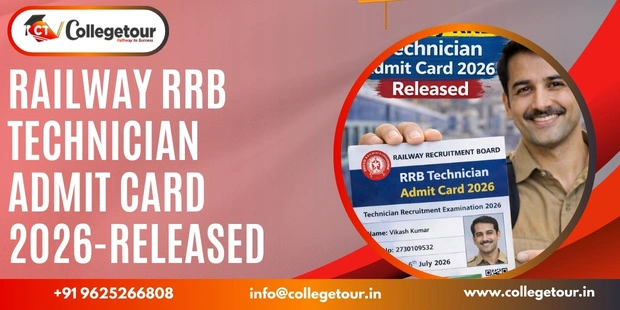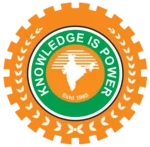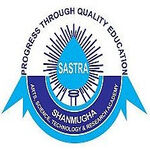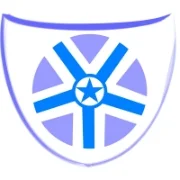
-
-
Colleges
Colleges
- Engineering
- Management
- Medical
- Science
- Distance Education
- Online Education
- Nursing
- Pharmacy
- Agriculture
- Law
- Commerce & Banking
- Art And Humanity
- Information Technology
- Mass Communication
- Design
- Dental
CollegesColleges in Engineering
- JAYPEE INSTITUTE OF INFORMATION TECHNOLOGY, (JIIT) NOIDA
- PRAVARA RURAL ENGINEERING COLLEGE, (PREC) LONI
- PUNJAB ENGINEERING COLLEGE, (PEC)
- SAVEETHA ENGINEERING COLLEGE, (SEC)
- PSNA COLLEGE OF ENGINEERING AND TECHNOLOGY, (PSNACET)
- SANT LONGOWAL INSTITUTE OF ENGINEERING AND TECHNOLOGY, (SLIET)
- GAYATRI VIDYA PARISHAD COLLEGE OF ENGINEERING, (GVPCE)
- GH RAISONI COLLEGE OF ENGINEERING, (GHRCE) NAGPUR
- RAJLALAKSHMI ENGINEERING COLLEGE, (REC)
- RMK ENGINEERING COLLEGE, (RMKEC)
- View All
CollegesColleges BY Location
Colleges in Management
- CHHATRAPATI SHAHU JI MAHARAJ UNIVERSITY (CSJMU), KANPUR
- CHAUDHARY CHARAN SINGH UNIVERSITY, (CCSU) MEERUT
- MOTILAL NEHRU NATIONAL INSTITUTE OF TECHNOLOGY, (MNNIT) PRAYAGRAJ
- SHARDA UNIVERSITY, (SU) GREATER NOIDA
- MJP ROHILKHAND UNIVERSITY, (MJPRU) BAREILLY
- IK GUJRAL PUNJAB TECHNICAL UNIVERSITY, (IKGPTU) JALANDHAR
- CHITKARA UNIVERSITY,(CU) PUNJAB
- VISVESVARAYA TECHNOLOGICAL UNIVERSITY, (VTU) BELAGAVI
- PES UNIVERSITY (PESU) BAHADURGARH
- CHRIST UNIVERSITY, (CU) BANGALORE
- View All
CollegesColleges BY Location
Colleges in Medical
- VEERMATA JIJABAI TECHNOLOGICAL INSTITUTE, (VJTI) MUMBAI
- VISHWAKARMA INSTITUTE OF TECHNOLOGY, (VIT) PUNE
- BIPIN TRIPATHI KUMAON INSTITUTE OF TECHNOLOGY, DWARAHAT
- CHANDIGARH COLLEGE OF HOSPITALITY, (CCH) PUNJAB
- DAGGUBATI CHENCHU RAMAYYA MEMORIAL PG COLLEGE
- DR. SUBHASH TECHNICAL CAMPUS
- NOBLE GROUP OF INSTITUTIONS, (NGI)
- PARA MEDICAL TRAINING INSTITUTE, (PMTI)
- CMR TECHNICAL CAMPUS
- SOBHASARIA GROUP OF INSTITUTIONS, (SGI)
- View All
CollegesColleges BY Location
Colleges in Science
- VIGNAN'S FOUNDATION FOR SCIENCE TECHNOLOGY AND RESEARCH, (VFSTR) GUNTUR
- GURU JAMBHESHWAR UNIVERSITY OF SCIENCE AND TECHNOLOGY, (GJUST) HISAR
- KKR AND KSR INSTITUTE OF TECHNOLOGY AND SCIENCES, (KKRKSRITS)
- RAJENDRA INSTITUTE OF TECHNOLOGY AND SCIENCES, (RITS)
- K M M INSTITUTE OF TECHNOLOGY AND SCIENCE, (KMMITS)
- SRI SARADA INSTITUTE OF SCIENCE AND TECHNOLOGY, (SSIST)
- GAYATHRI INSTITUTE OF TECHNOLOGY AND SCIENCES
- SREENIDHI INSTITUTE OF SCIENCE AND TECHNOLOGY, (SIST)
- HOLY MARY INSTITUTE OF TECHNOLOGY AND SCIENCE, (HMITS)
- SHRI DADAJI INSTITUTE OF TECHNOLOGY AND SCIENCE, (SDITS)
- View All
CollegesColleges BY Location
Colleges in Distance Education
- BHAGWANT UNIVERSITY DISTANCE EDUCATION, AJMER
- JAIPUR NATIONAL UNIVERSITY (JNU) DISTANCE EDUCATION JAIPUR
- KANNUR UNIVERSITY - DISTANCE EDUCATION
- PONDICHERRY UNIVERSITY DIRECTORATE OF DISTANCE EDUCATION
- PT RAVI SHANKAR SHUKLA UNIVERSITY, DISTANCE EDUCATION
- INDIRA GANDHI NATIONAL OPEN UNIVERSITY , DISTANCE EDUCATION
- JAMIA HAMDARD UNIVERSITY , DISTANCE EDUCATION
- LALIT NARAYAN MITHILA UNIVERSITY (LNMU) DARBHANGA , DIRECTORATE OF DISTANCE EDUCATION
- MADHYA PRADESH BHOJ OPEN UNIVERSITY DISTANCE EDUCATION
- MAHATMA GANDHI ANTARRASHTRIYA HINDI VISHWAVIDYALAYA, (DISTANCE EDUCATION) WARDHA
- View All
CollegesColleges BY Location
Colleges in Online Education
- BHARATI VIDYAPEETH ONLINE EDUCATION
- Manipal University Online Education
- JAIN UNIVERSITY ONLINE EDUCATION
- ICFAI ONLINE EDUCATION
- DR. D.Y. PATIL UNIVERSITY ONLINE EDUCATION
- NMIMS ONLINE EDUCATION
- AMITY UNIVERSITY ONLINE EDUCATION
- AMRITA ONLINE EDUCATION
- MYSORE UNIVERSITY ONLINE EDUCATION
- PERIYAR UNIVERSITY ONLINE EDUCATION
- View All
CollegesColleges By Degrees
Colleges in Nursing
- GURU NANAK DEV UNIVERSITY,(GNDU)
- NAV NIRMAN SEWA SAMITI'S SAMALKHA GROUP OF INSTITUTIONS, (NNSSSGI)
- ST MARY’S INTEGRATED CAMPUS, (SMIC) HYDERABAD
- THE NORTHCAP UNIVERSITY, (TNU) GURGAON
- SREE SAI MBA COLLEGE, (SSMBAC) NANDIKOTKUR
- KVM COLLEGE OF NURSING, ALAPPUZHA
- NAM RATTRA INTERNATIONAL COLLEGE OF NURSING, AMRITSAR
- MAHA SHIV SHAKTI SCHOOL OF NURSING, AMRITSAR
- ARVINTH COLLEGE OF NURSING, NAMAKKAL
- MOTHER MARRY INSTITUTE OF NURSING, HOSHIARPUR
- View All
CollegesColleges in Pharmacy
- NARAYANA PHARMACY COLLEGE, (NPC)
- TALLA PADMAVATHI COLLEGE OF PHARMACY, (TPCP)
- GULZAR GROUP OF INSTITUTES, LUDHIANA
- SHAHEED SUKHDEV SINGH COLLEGE OF PHARMACY, (SSSCP)
- SHREEYASH INSTITUTE OF PHARMACY, (SIP)
- S.R. INSTITUTE OF PHARMACY, (SRIP)
- DATTAKALA COLLEGE OF PHARMACY
- MET'S INSTITUTE OF D.PHARMACY, (MIDP)
- SHREE SARASWATI INSTITUTE OF PHARMACY, (SSIP)
- MATHURADEVI INSTITUTE OF PHARMACY, (MIP) INDORE
- View All
CollegesColleges By Degrees
Colleges BY Location
Colleges in Agriculture
- BHAGWAN MAHAVEER SCHOOL OF ARCHITECTURE
- AGRICULTURE AND FOOD MANAGEMENT INSTITUTE
- MAHATMA PHULE AGRICULTURE VIDYAPEETH, (MPAV) AHMEDNAGAR
- COLLEGE OF AGRICULTURE, (CA) AKOLA
- SHRI SHIVAJI COLLEGE OF AGRICULTURAL BIOTECHNOLOGY, AMRAVATI
- SHRI SHIVAJI AGRICULTURE COLLEGE, AMRAVATI
- PR PATIL COLLEGE OF ARCHITECTURE, AMRAVATI
- CHAUDHARY CHARAN SINGH HARYANA AGRICULTURAL UNIVERSITY, (CCSHAU) HISAR
- CENTRAL AGRICULTURAL UNIVERSITY, IMPHAL
- JAWAHARLAL NEHRU KRISHI VISHWA VIDYALAYA, (JNKVV) JABALPUR
- View All
CollegesColleges BY Location
Colleges in Law
- DR. AMBEDKAR GOVERNMENT LAW COLLEGE, (DAGLC) CHENNAI
- K.L.E. LAW COLLEGE, (KLELC) BANGALORE
- YASHWANTRAO CHAVAN LAW COLLEGE, (YCLC)
- SHRI SHAHU MANDIR MAHAVIDYALAYA, (SSMM)
- A SHAMA RAO FOUNDATIONS' GROUP OF INSTITUTIONS, (ASRFGI)
- A.N. VARADARAJULU FIRST GRADE COLLEGE, (ANVFGC)
- A.P. SINGH MEMORIAL COLLEGE, (APSMC)
- A.S. GROUP OF INSTITUTIONS, (ASGI)
- ABHAY YUWA KALYAN KENDRA ARTS MAHILA COLLEGE, (AYKKAMC)
- ABHAYAPURI COLLEGE, (AC)
- View All
CollegesColleges in Commerce & Banking
- SHRI ATAL BIHARI VAJPAYEE GOVT ARTS AND COMMERCE COLLEGE, (SABVGACC) INDORE
- RISHI UBR COLLEGE FOR WOMEN, (RUCW)
- SURENDERA GROUP OF INSTITUTIONS,(SGI)
- AVANTHI DEGREE AND P.G. COLLEGE, (ADPGC)
- DOON VALLEY INSTITUTE OF COMPUTER APPLICATIONS
- KGRL COLLEGE, (KGRLC)
- THE MARATHWADA MITRAMANDAL’S INSTITUTE OF TECHNOLOGY, (TMMIT)
- RAJSUDHA INSTITUTE OF TECHNICAL EDUCATION, (RITE)
- PATEL GROUP OF INSTITUTIONS, (PGI)
- PRAGATI MAHAVIDYALAYA PG COLLEGE, (PMPGC)
- View All
CollegesColleges BY Location
Colleges in Art And Humanity
- NOBLE ARCHITECTURE COLLEGE, (NAC) JUNAGADH
- KMM INSTITUTE OF POSTGRADUATE STUDIES, (KMMPGS) TIRUPATI
- VIZAG INSTITUTE OF TECHNOLOGY
- EVINENI VENKATA RAMANA AND DR. HIMA SEKHAR MIC COLLEGE OF TECHNOLOGY
- SAI KRISHNA COLLEGE, (SKC)
- GAUTHAMI PG COLLEGE
- QUEST INFOSYS FOUNDATION GROUP OF INSTITUTIONS, (QIFGI)
- BARPETA GIRLS' COLLEGE, (BGC)
- BILAT MAHTHA ADARSH MAHAVIDYALAYA
- DAKSHIN KAMRUP GIRLS’ COLLEGE
- View All
CollegesColleges in Information Technology
- MAM B- SCHOOL, (MAMBS)
- BEHARA POLYTECHNIC, (BP)
- MGA INSTITUTE OF POLYTECHNIC, (MGAIP)
- GOVERNMENT POLYTECHNIC, CHAMPAWAT
- GOVERNMENT POLYTECHNIC, TEKKALI
- E S C GOVT. POLYTECHNIC
- GOVERNMENT POLYTECHNIC, CHEGUNTA
- R. R. INSTITUTE OF MODERN POLYTECHNIC, (RRIMP)
- SONKAR POLYTECHNIC, (SP)
- MAHAMAYA IT POLYTECHNIC, (MITP) KANNAUJ
- View All
CollegesColleges BY Location
Colleges in Mass Communication
- MAHESH INSTITUTE OF PROFESSIONAL STUDIES, (MIPS) BARMER
- AMBALIKA INSTITUTE OF PROFESSIONAL STUDIES, (AIPS)
- ENVIRONMENT PROTECTION TRAINING AND RESEARCH INSTITUTE
- GOVERNMENT THIRUMAGAL MILLS COLLEGE
- SAMARATH COLLEGE FOR EDUCATION AND TECHNOLOGY, (SCET)
- LAXMI INSTITUTE OF ARCHITECTURE, (LIA)
- RIMT-COLLEGE OF ARCHITECTURE, (RITMCA)
- SIR C R REDDY COLLEGE, (SCRRC)
- VISHWA VISHWANI INSTITUTE OF TECHNOLOGY, (VVIT) HYDERABAD
- SMT. DURGABAI DESHMUKH WOMEN'S TECHNICAL TRAINING INSTITUTE, (SDDWTTI)
- View All
CollegesColleges By Degrees
Colleges BY Location
Colleges in Design
- ALLIANCE COLLEGE OF ENGINEERING AND DESIGN, (ACED) BANGALORE
- SCHOOL OF PETROLEUM TECHNOLOGY, (SPT)
- SKYTECH TECHNICAL TRAINING FOUNDATION, (STTF)
- CHALAPATHI INSTITUTE OF TECHNOLOGY
- AGNEL INSTITUTE OF TECHNOLOGY AND DESIGN, (AITD)
- AGNEL TECHNICAL COLLEGE (POLYTECHNIC), (ATC)
- AGNI COLLEGE OF TECHNOLOGY, (ACT)
- AGNI SCHOOL OF BUSINESS EXCELLENCE, (ASBE)
- INTER NATIONAL INSTITUTE OF FASHION DESIGN, AJMER
- ARVINDBHAI PATEL INSTITUTE OF ENVIRONMENTAL DESIGN, (APIED) VALLABH VIDYANAGAR
- View All
CollegesColleges BY Location
Colleges in Dental
- GOVERNMENT POLYTECHNIC, (GP) DEBAIBULANDSHAHR
- TTAADC POLYTECHNIC INSTITUTE, (TTAADCPI)
- MAKHANLAL CHATURVEDI NATIONAL UNIVERSITY OF JOURNALISM AND COMMUNICATION, (MCNUJC)
- INDIRA GANDHI UNIVERSITY, (IGU) MEERPUR REWARI
- METAS ADVENTIST COLLEGE, (MAC)
- MMIT,(MMIT) SANT KABIR NAGAR
- R.L. JALAPPA POLYTECHNIC, (RLJP)
- SIRDA POLYTECHNIC
- SRI KRISHNA COLLEGE OF TECHNOLOGY, (SKCT) COIMBATORE
- AKSHARA POLYTECHNIC COLLEGE, (APC)
- View All
-
Exams
Exams
-
Courses
Courses
All Courses
- Architecture
- B. Lib
- B.Arch.
- B.Des(Hons.)
- B.Design
- B.Ed
- B.F.Sc
- B.OPTM
- B.Pharm
- B.Plan
- B.Sc
- B.Tech
- B.Tech (Lateral)
- B.TECH Hons.
- B.Tech(Evening)
- B.Voc
- BA
- Bachelor of Engineering (Lateral)
- Bachelor of Pharmacy(Lateral)
- Bakery & Confectionery
- BAMS
- BBA
- BBA PLATINA
- BBF
- BBM
- BCA
- BCom
- BDS
- BE
- BFA
- BHMCT
- BHMS
- BJMC
- BMS
- BNYS
- BOT
- BPA
- BPE
- BPT
- BSc MLT
- BSW
- BUMS
- BV.Sc
- BVA
- Certificate
- D.Litt
- D.Pharma
- D.Sc
- Diploma
- Diploma (Lateral)
- Diploma of Proficiency
- DM
- DTTM
- EMBF
- FBA
- FDP
- FPM
- Global MBA
- Integrated LLB
- Integrated M.Tech
- IPM
- Languages
- LLB
- LLD
- LLM
- LLM
- M.Arch
- M.CH
- M.Com
- M.Design
- M.E
- M.Ed
- M.F.Sc
- M.J.M.C.
- M.Lis
- M.Optom
- M.P.Ed
- M.Pharma
- M.Phil
- M.Plan
- M.Sc
- M.Tech
- M.Voc.
- MA
- Masters of Business Administration (Lateral)
- MBA
- MBA++
- MBBS
- MBF
- MCA
- MCA (LATERAL)
- MD
- MDP
- MDS
- MFA
- MGNF
- MHM
- MIB
- MMS
- MOT
- MPT
- MS
- MSW
- MUP
- MV.Sc
- MVA
- Nursing
- Online MBA
- Online MBA
- Online MCA
- Paramedical
- PGD
- PGDTTM
- PGP
- PGPEB
- PGPEX
- PGPM
- Ph.D
- Pharm.D
- PT
- STRP
- Latest News
-
More
More
Refer and Earn
Get Upto Rs 10,500*
Get Upto Rs 10,500*


















Leave a Reply